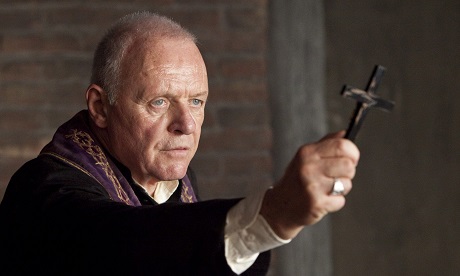A quality control guide has been issued by a group of exorcists to combat demonic possession.
The handbook insists authority to perform exorcisms belongs exclusively to priests assigned by their diocesan bishop.
According to the group, they issued the quality control guide because of a perception that there are too many unauthorised rogue operators, both clerical and lay, who claim to perform exorcisms.
The guidance was published in May in Italian and is edited by the International Association of Exorcists.
The exorcists association was founded in 1990 and included Father Gabriele Amorth, who served from 1986 until his death in 2016 as an exorcist for the Diocese of Rome.
The association was recognized by the Vatican’s Congregation for Clergy in 2014.
According to the International Association of Exorcists, while the guidelines are not an official Church document, the contents were reviewed by Vatican departments prior to publication.
They decided to make the guidelines public because of a desire to “bring order to the questions about diabolic action and liberation from it, in order to avoid falling into dangerous deceptions and illusions.”
To support its insistence that only specifically mandated priests may perform exorcisms, the text provides theological arguments about the source of an exorcist’s power.
It is the power of Christ channeled through the Church, and not “more potent exorcistic formula or the individual ‘powers’ of a priest” that determine the efficacy of the ritual, the International Association says.
In particular the quality control guide says:
- Only priests possess a mandate from the Church to “command demons in the name of God to recede, no longer to harm human creatures for any reason.”
- The ministry of exorcism isn’t just about the recitation of prayers, but “discernment and accompaniment of faithful tormented by the devil,” pastoral tasks which “occupy a very important and essential place.”
- If a bishop names an exorcist, he also has a responsibility to make sure that priest has a “specific preparation that renders him more suited than anyone else to discernment of extraordinary diabolic action.”
Unauthorised people who attempt to perform exorcisms may open the door to further demonic influence over the people they’re trying to help, the guidelines warn. They also say a legitimate exorcist empowered by the Church must not request any payment for his services.
Most of the text focuses on guidelines for discerning general psychological or emotional difficulties from the specific influence of demonic powers.
“Often, facing the difficulties of life, some may conclude that ‘everything has gone wrong’ because ‘someone is doing something’,” the text warns. “This could be just an alibi that distracts [the person] from the most important teachings.”
The guide also cites particular behaviors which may become the occasion for demonic influence over people, including superstition and the practice of witchcraft.
Source
- Crux Now
- Image: The Telegraph
News category: World.




